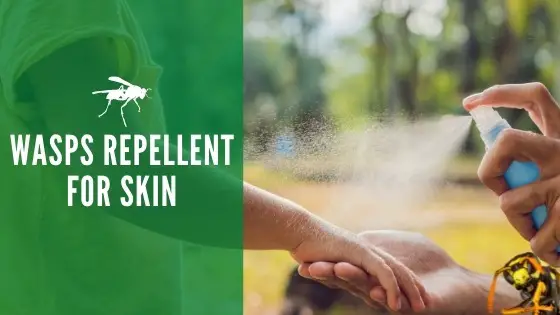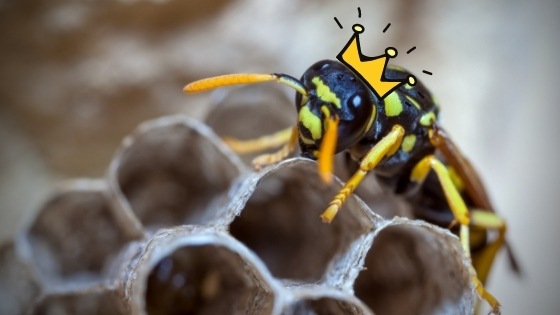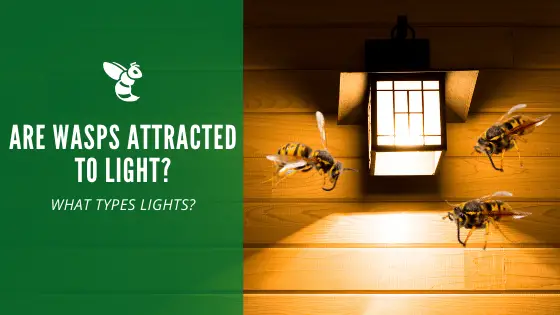Does Soapy Water Kill Wasps?
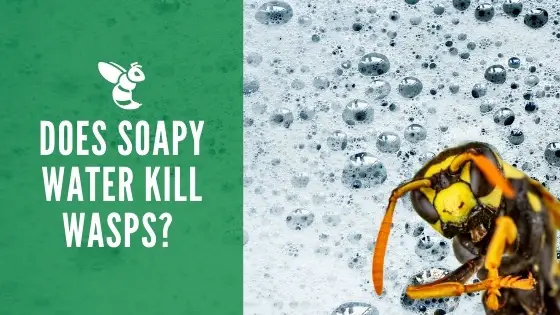
Wasps are one pest that can ruin your outdoor summer gathering. They are persistent, and they can sting multiple times if they feel threatened. When you need to get rid of wasps, the good news is that you do not need to resort to harmful chemicals. Here are some ways that you can get rid of them using a common household product that you already have around your home.
Why Does Dish Soap Kill Wasps?
One of the most effective ways to kill wasps and hornets is with a mixture of dish soap (like Dawn) and water in a spray bottle. To understand how this works, you must know a little bit about how wasps breathe.
First, you must understand that wasps do not have lungs and breathe through their nose and mouth as we do. They have organisms called spiracles all over their body, so what do spiracles do?
Spiracles are like a small air sac with a valve that lets air into the body cavity of the wasp. They do not have to use a diaphragm to force air into the lungs. Wasps and many other insects collect oxygen from the air around them in the form of passive breathing. They don’t have to do anything, and it happens without them taking any action.
You might be wondering how wasps do not drown in the rain. The answer is that the surface tension of the water prevents it from entering its body. When you add a few drops of dish soap to water, the detergent in the dish soap breaks the surface tension of the water and allows it to enter their body. Essentially, the dish soap in the water causes them to drown because they cannot breathe.
How Do You Kill Wasps with Soapy Water
Mixing up the dish soap and water solution is easy, but there are a few precautions and caveats that you need to know about when using this method. The recipe is simple. You mix between 2-4 tablespoons of your favorite dish soap (Dawn) with 2 cups of water. Place this in a spray bottle. Hot water works best, and a spray bottle with a strong, direct stream is preferred.
Now for the caveats. This mixture will kill the wasps within a few minutes, but in the meantime, they may see you as a threat to their nest and try to sting you. Before trying this method, it is always a good idea to put on long sleeves, use some sort of protective gear for your head, and protect exposed skin.
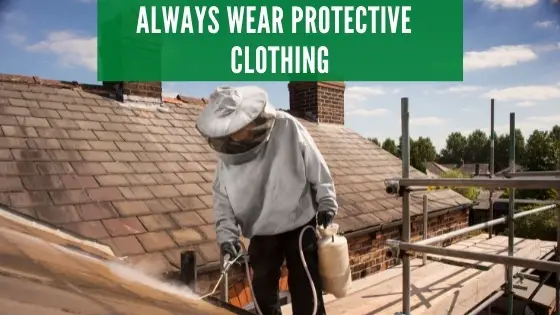
Remember that wasp can sting through blue jeans, but they have a little more difficulty stinging through quilted fabrics.
It is best only to use this method if you see a single wasp. The next caveat is that when you spray the wasp, and it becomes more difficult to breathe, it may send out a pheromone distress signal that other wasps will pick up and come to help defend the nest. It is best to spray the wasp and then quickly leave the area.
Not Best for Wasp Nests
Also, it is not a good idea to try this method on a nest of wasps or hornets. The problem is that the water takes some time to penetrate the nest. You also might not saturate the entire nest with the water, which means some are still alive to seek out the invader and launch a defense attack.
If you try to use soap and water on an entire nest, you might kill a few of the wasps on the outside, but that leaves many more to attack you in mass.
Another thing to consider when trying to kill wasp nests with soapy water, which is not recommended, is that wasp nests are coated with a waxy substance that prevents water from seeping in.
If you are going to try this method, even on a single wasp, make sure there are no children or pets in the immediate area, and make sure you have a clear exit without any tripping hazards.
Several natural oils have been proven to help keep wasps away from your home. Here are a few of them.
- Peppermint oil
- Lemongrass oil
- Cayenne pepper
- Clove oil
- Geranium Oil
To make a wasp deterrent, you can mix about eight drops of one or more of these oils in a large spray bottle, add ten drops of dish soap, and fill it with water. You can use this to spray areas around your house where wasps may be tempted to nest.
You must apply it frequently because the oils eventually evaporate. If you see a wasp around your home looking to build a nest, you can spray the area with this oil, and it will probably go away and find somewhere else to make its home.
Now, you have several ways to kill wasps on contact and keep them away from your home in the first place. The most important thing to keep in mind if you decide to use the dish soap and water method is to understand that the wasp will see you as a threat to the nest. They will spend their last dying “breath” to defend their young. This method works, but make sure you have a solid plan first.
Sources:
https://pubmed.ncbi.nlm.nih.gov/23081867/
https://lifeofbreath.org/2019/03/mysterioius-breathers-how-insects-breathe/

